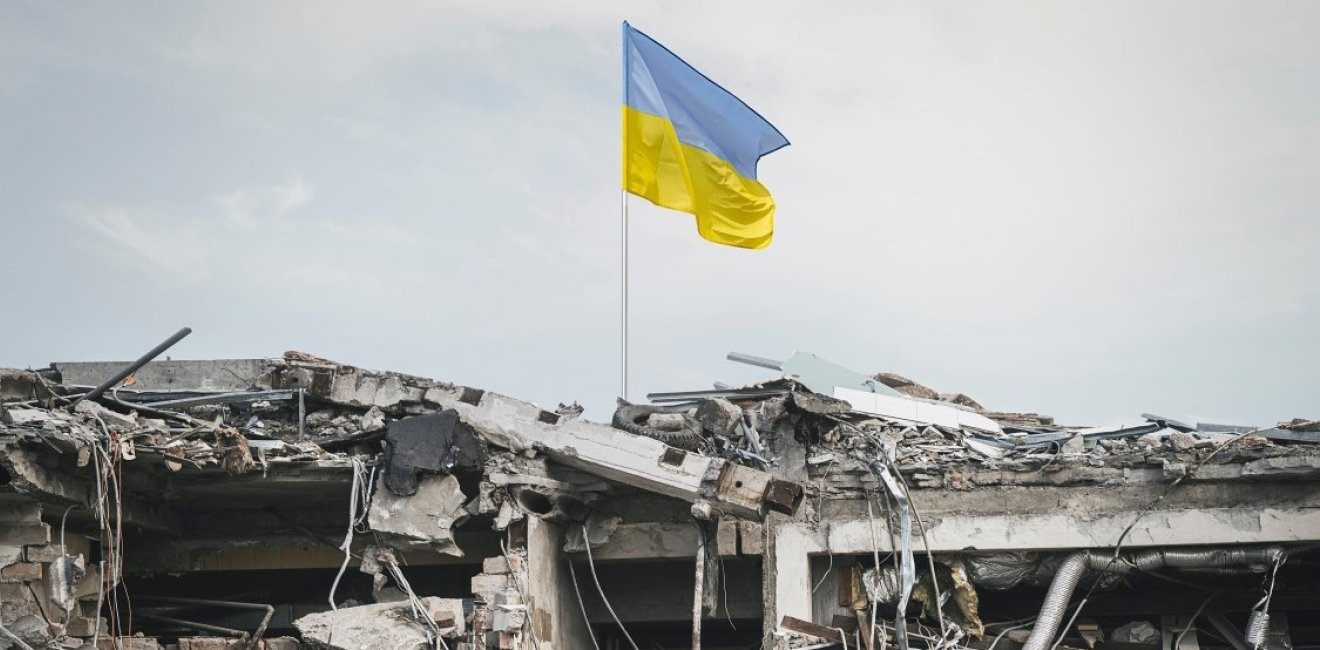
A blog of the Wilson Center
In the midst of Russian bombs and bullets, a recent survey finds Ukrainians looking toward a less corrupt, more economically vibrant future.
It’s hard to overstate the damage and suffering that Russian forces (bolstered by Iran, North Korea, and others) have inflicted upon the Ukrainian people over the last two plus years. The numbers say it all:
-
Tens of thousands of Ukrainian soldiers killed.
-
More than 10,000 civilians killed, and over 20,000 injured. Of these, 1,885 are children, and thousands more have been abducted or forcibly taken to Russia.
-
3.7 million Ukrainians are internally displaced; 6.5 million have been forced from the country.
-
14.6 million people need humanitarian assistance.
-
More than 465 medical facilities and 1,072 educational facilities have been damaged or destroyed.
-
Land mines are scattered across of Ukraine’s territory—an area equivalent to the state of Florida—and have killed nearly 1,000 civilians.
In my recent journey around Ukraine with the UN’s lead refugee agency, nearly everyone I met gave me the same message: “Tell America we are tired—but not exhausted.” That is evident in how their soldiers continue to fight back fiercely, even when political delays in the West left them with military supply shortages. But it can also be seen in how they think about the future.
Corruption has been a significant problem in Ukraine, as it has been in many countries that were once part of the Soviet Union. In recent years, it has been Ukraine’s failure to clear the Millennium Challenge Corporation’s corruption indicator (one of the MCC’s two so-called “hard hurdles”) that has prevented the agency from negotiating a new compact with the country. Critics of US assistance to Ukraine have suggested that the vast sums of material and financial support going to Ukraine are too great a temptation for corrupt officials, given the country’s past corruption record. After all, Ukraine is the top recipient of US foreign aid—the first time a European country has held that spot since the Marshall Plan.
Yet, despite the persistent toll of war, the assistance entering the country, and the obvious need for Ukrainian officials to move resources rapidly, a recent poll finds Ukrainian citizens reporting progress in the fight against corruption. The Ninth Annual Ukrainian Municipal Survey, conducted by the International Republican Institute in April and May 2024, finds at least 80% of respondents in every part of the country surveyed saying they never felt obligated “to provide a favor, give a gift or pay a bribe to a local official to get services….” This is a substantial improvement over 2019 numbers.
As noted in a Stubborn Things (“Ukranian Corruption, Russian Corruption”), while corruption is still on the minds of citizens, even in the midst of battling Russian forces and ongoing war-related repairs, Ukrainian law enforcement launched multiple high-level corruption investigations into government officials. In some cases, these investigations have led President Zelensky to dismiss several members of his own administration.
But their vision for the future goes beyond corruption. When asked how the government should approach reconstruction after the war, three-quarters said leaders should “include the introduction of green, energy-saving technologies and modernization” even if it “takes longer” to complete. This strong support for a more patient approach and modernized infrastructure was found even in parts of the country that had received the heaviest damage from Russian bombardment, places like Kharkiv.
“Tired, but not exhausted.” It’s a remarkable trait in a nation that must be terribly war weary. This war was unprovoked, and the Russians have hurled everything they can at the Ukrainian people. As Secretary Blinken noted on multiple occasions, there is clear evidence of atrocities and war crimes. In recent weeks, there have been reports of chemical weapons being used against Ukrainian civilians. And yet, they not only fight on, but they tell their leaders to undertake the policies and reforms that will make future Ukraine their ultimate victory over Putin’s tyranny and aggression.
This blog was researched and drafted with the assistance of Camilla Reitherman.
Author


Global Europe Program
The Global Europe Program is focused on Europe’s capabilities, and how it engages on critical global issues. We investigate European approaches to critical global issues. We examine Europe’s relations with Russia and Eurasia, China and the Indo-Pacific, the Middle East and Africa. Our initiatives include “Ukraine in Europe”—an examination of what it will take to make Ukraine’s European future a reality. But we also examine the role of NATO, the European Union and the OSCE, Europe’s energy security, transatlantic trade disputes, and challenges to democracy. The Global Europe Program’s staff, scholars-in-residence, and Global Fellows participate in seminars, policy study groups, and international conferences to provide analytical recommendations to policy makers and the media. Read more

Explore More in Stubborn Things
Browse Stubborn Things
Spying on Poachers

China and the Chocolate Factory

India: Economic Growth, Environmental Realities

